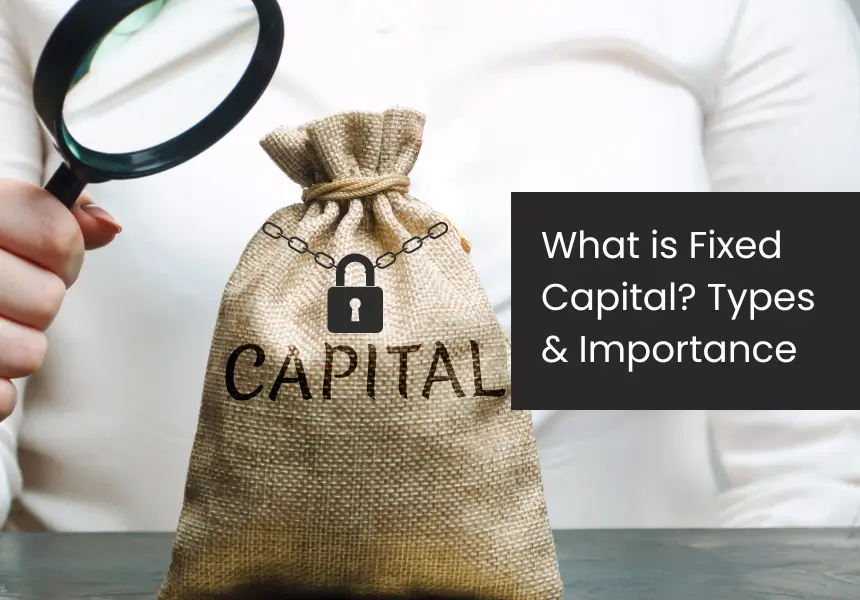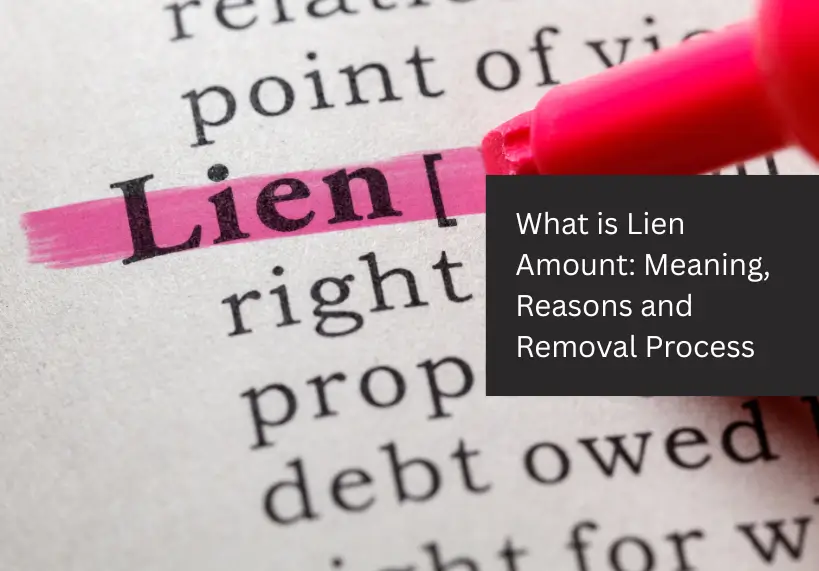
Running a bakery without ovens or a factory without machines seems unthinkable, right? These essential assets are what businesses rely on to operate effectively every single day. These long-term investments, also known as fixed assets, are important for running business operations smoothly. These assets aren’t just one-time purchases but long-term investments that help the business grow.
Fixed capital helps businesses invest in long-term assets. Think of it as the study framework that supports all operations, much like the foundation of a house that holds everything in place. With fixed capital, a company would be able to expand, innovate, or even maintain its daily operations. From manufacturing plants and machinery to office buildings and vehicles, fixed capital includes the assets that keep a business running for years.
Let’s understand fixed capital, its importance, and how businesses can leverage it to drive growth, improve efficiency, and secure their competitive edge.
Fixed Capital Meaning
Fixed capital is the investment that a business makes in long-term assets that are used for extended periods, such as buildings, machinery, and equipment. These assets are essential during production and are not intended to be sold or consumed in the short term. Instead, they help generate revenue over time.
Unlike working capital, which is used to manage daily operations, fixed capital is invested in assets that support the company’s long-term functioning. These assets are subjected to depreciation due to their prolonged use, which means that they gradually lose value over time but are still essential during production.
Overall, fixed capital helps sustain a company’s operations over the long term. While it doesn’t directly produce goods, it enables the processes that generate business output, spreading its value over multiple years.
Importance of Fixed Capital
Fixed capital helps businesses operate smoothly, grow, compete, and secure financing when needed. Here are a few reasons why it is important:
1. Facilitates long-term operations
Fixed assets such as machinery, buildings, and equipment are required to keep the business running smoothly. These assets help produce goods, manage the company, and handle logistics.
2. Helps in expansion
Fixed capital helps expand a business within its current sector and branch out into new markets. Moreover, by enhancing production and capacity and improving infrastructure, businesses can meet the increasing demand and achieve long-term success.
3. Indicates financial strength
The quality and value of fixed assets often show how financially stable a company is. For example, a factory with new machinery can produce more and better-quality products, leading to higher profits.
4. Gives a competitive advantage
Intangible fixed assets like patents or trademarks provide businesses with exclusive advantages. These assets protect intellectual property, creating a protective barrier against competitors and ensuring market leadership.
5. Source of financing
Tangible fixed assets such as property or machinery can be used as collateral to secure loans, which can help fund future business projects.
Types of Fixed Capital
Fixed capital can be broadly divided into two categories:
1. Tangible Fixed Capital
Tangible fixed capital includes physical assets that a business uses over the long term. Common examples include machinery, vehicles, buildings, and land. These assets are important during production, providing the necessary infrastructure to keep operations running smoothly. They hold significant monetary value and are often considered high-investment assets, given their long lifespan and durability.
2. Intangible Fixed Capital
Intangible fixed capital consists of assets that do not have a physical form but still provide long-term value to a company. These assets include patents, trademarks, copyrights and software licenses. Although intangible, they are essential for a business’s competitive edge and significantly impact its market position. These assets help enhance a company’s brand, protect its innovations, and streamline operations through technology or proprietary systems.
Fixed Capital Financing
Sources of fixed capital refer to the various avenues through which businesses can secure funds to invest in long-term assets. Here are common methods and sources that businesses use to obtain fixed capital:
1. Equity financing
Equity financing is when a company sells shares to raise money. This method allows companies to avoid incurring debt; instead, it often gives up partial ownership and decision-making power. Equity financing is ideal for businesses seeking growth without the stress of loan repayments.
2. Debt financing
This involves borrowing funds through loans, bonds, or debentures. Debt financing allows companies to retain complete control while benefiting from tax deductions on interest payments. It can be a cost-effective way to obtain fixed capital, especially for businesses looking to grow without giving up equity.
3. Owner’s resources
This is often the primary source of fixed capital when starting a business. Entrepreneurs may use their personal savings or investments to finance the purchase of necessary long-term assets.
4. Term loans from banks or financial institutions
When the owner’s capital becomes insufficient, they often turn to banks or other financial institutions for term loans. These loans are usually secured against collateral such as property or machinery, especially for large amounts. Smaller loans might not require such security.
5. Issuance of shares
Companies can raise fixed capital by issuing shares. Public companies may conduct Initial Public Offerings (IPOs) to raise funds for fixed assets, while established companies can issue new shares to investors to finance their long-term needs.
6. Retained earnings
Businesses can also reinvest some of their retained earnings profits into acquiring fixed assets. This internal funding source is a cost-effective way of financing without incurring debt or diluting ownership.
7. Issuing debentures
Companies can issue debentures as a way to raise money for long-term assets. Investors purchase these bonds, providing the company with the necessary capital, while the company repays the debt over time with interest.
Fixed Capital Examples
To understand fixed capital further, consider the following example: Suppose a manufacturing company decides to expand its operations. To enhance production, the company invests in advanced machinery and a new factory.
These investments, totalling ₹7 crore, are meant to be used for many years, directly contributing to the company’s production capacity and long-term profitability. This machinery and building infrastructure expenditure is considered fixed capital because these assets are long-term and essential for the company’s ongoing business operations.
What are the Challenges Associated with Fixed Capital?
1. High initial costs
Fixed capital generally means a large upfront investment, as businesses need to purchase assets such as machinery, equipment and property. For small businesses or new entrepreneurs, this can create financial strain and pose challenges in managing cash flow, potentially delaying operations until sufficient funds are secured.
2. Depreciation
Fixed assets such as machinery and buildings lose value over time due to wear and tear. This depreciation must be accounted for in financial statements. While it doesn’t directly impact cash flow, it can reduce the overall value of a company’s assets, affecting profitability and asset management.
3. Technology obsolescence
Technology upgrades quickly, and some fixed assets might need to be updated. Businesses that rely on technology may need to upgrade their technological equipment often, which can be expensive and require continuous investment.
4. Limited liquidity
Long-term assets that are purchased using fixed capital cannot be sold for cash quickly. If a business faces financial problems, selling these assets may take time, making it difficult to cover urgent expenses.
5. Maintenance costs
Fixed assets like machinery and buildings require regular maintenance to keep them running smoothly. These ongoing costs can add up and reduce overall profits, increasing the money needed to operate the business.
Conclusion
Fixed capital shapes the long-term success of any business. Companies create a strong foundation that supports ongoing operations and future growth by investing in durable assets like machinery, buildings, and infrastructure. These assets not only help in maintaining production efficiency but also allow businesses to innovate and scale.
Securing a business loan can be a smart financial strategy to strengthen your business with suitable fixed capital investments. Business loans provide the finances needed to acquire crucial assets, expand operations, and drive long-term growth. With flexible repayment options and competitive interest rates, business loans can help you take the next step toward building a stronger, more successful enterprise.
Frequently Asked Questions
How do companies obtain fixed capital?
Companies can typically obtain fixed capital through long-term loans, equity investments, or internal funds. Because fixed capital investments are significant and long-lasting, businesses often plan these expenditures carefully to ensure they generate long-term returns.
How is the value of fixed capital calculated?
The value of fixed capital is typically calculated by the initial cost of purchasing the assets minus depreciation over time. This gives the current value of long-term assets on a company’s balance sheet.
What industries require high levels of fixed capital?
Industries like manufacturing, construction, transportation, and energy typically require high fixed capital because they rely heavily on large-scale equipment, facilities, and infrastructure.
What are the risks associated with fixed capital investments?
The risks include obsolescence, where technology or machinery becomes outdated, and depreciation, where the asset’s value decreases over time. Additionally, if a company over-invests in fixed assets, it may face liquidity problems.
Can small businesses have fixed capital?
Yes, small businesses also invest in fixed capital, such as office space, computers, or vehicles. While the scale may be smaller, fixed capital is essential to any business, regardless of size.








